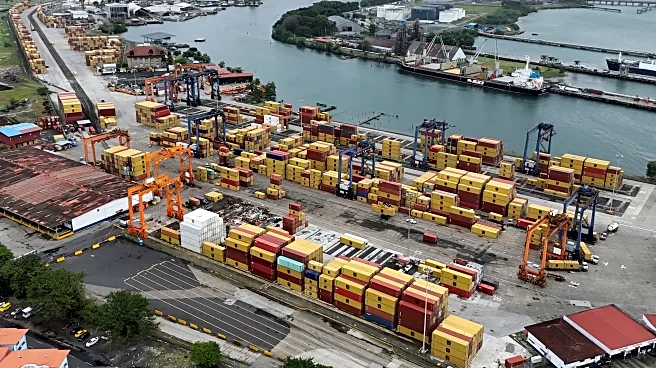What's Happening?
The Ministry of Human Resources, known as KESUMA, has unveiled the Budget 2026, which emphasizes social protection, skills enhancement, and workforce well-being. The budget allocates RM1.828 billion to various initiatives aimed at empowering the labor market. Key measures include covering 70% of contributions to the Self-Employment Social Security Scheme for gig workers, completing four rehabilitation centers to aid injured workers, and increasing mobility incentives for job seekers. Additionally, the budget raises haemodialysis treatment assistance and expands health screening programs to include public transport and goods drivers. To boost workforce skills, the government is investing RM7.9 billion in Technical and Vocational Education and Training, with additional funds allocated for training in strategic fields such as AI and electric vehicles.
Why It's Important?
The Budget 2026 initiatives are crucial for enhancing the welfare and skills of Malaysia's workforce, particularly in the gig economy and technology sectors. By providing social security coverage and health benefits, the government aims to protect workers and improve their quality of life. The focus on skills development, especially in emerging fields like AI and EVs, is expected to prepare the workforce for future economic challenges and reduce reliance on low-skilled foreign labor. These measures could lead to a more resilient and competitive labor market, benefiting both workers and employers in Malaysia.
What's Next?
The implementation of Budget 2026 will involve the establishment of rehabilitation centers and the rollout of training programs across various sectors. KESUMA will likely monitor the impact of these initiatives on workforce welfare and skills development. Stakeholders, including gig workers and employers, may respond to these changes by adapting their practices to align with new social security and training opportunities. The government may also evaluate the effectiveness of these measures and make adjustments to ensure they meet the needs of the workforce.
Beyond the Headlines
The emphasis on skills development in strategic fields highlights a shift towards a knowledge-based economy, which could have long-term implications for Malaysia's economic growth. By investing in technology and new energy sectors, the government is positioning the workforce to capitalize on global trends and innovations. This approach may also foster a culture of continuous learning and adaptation among workers, contributing to sustainable economic development.









